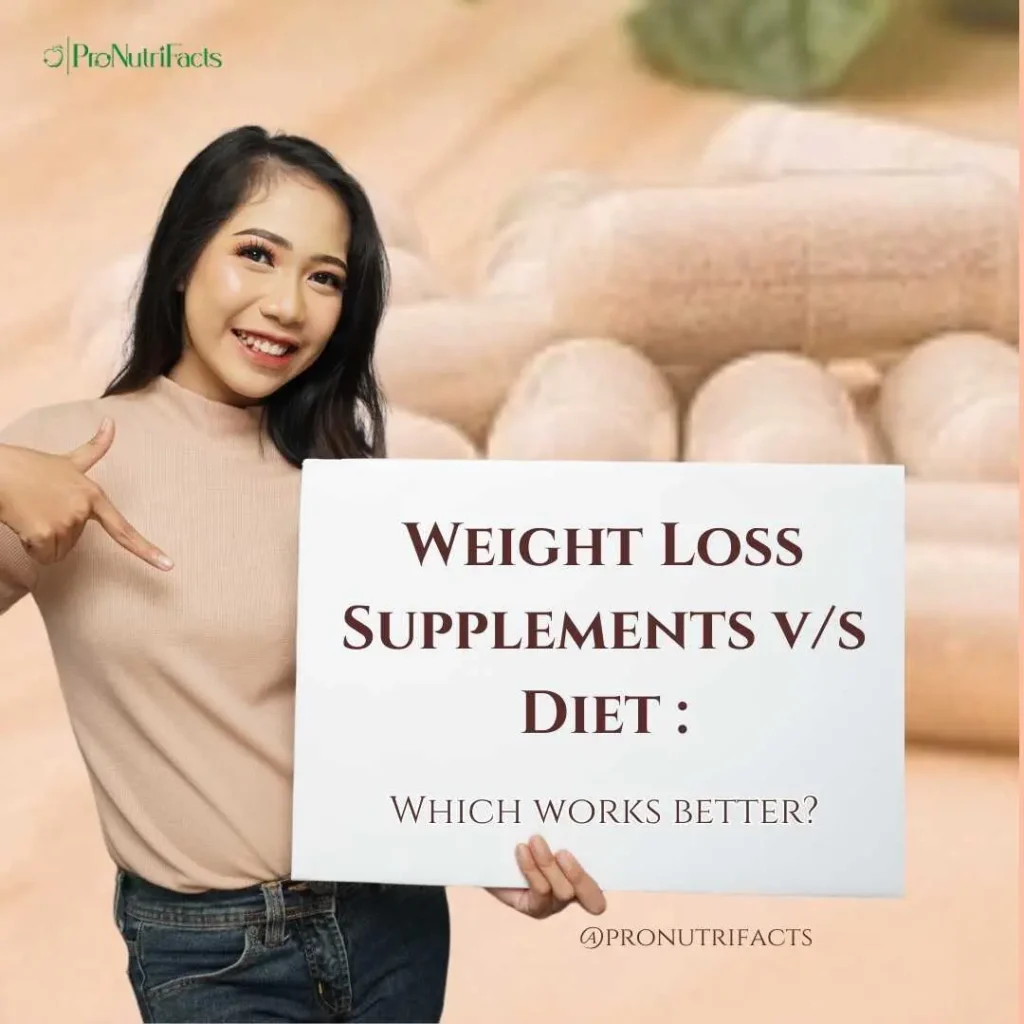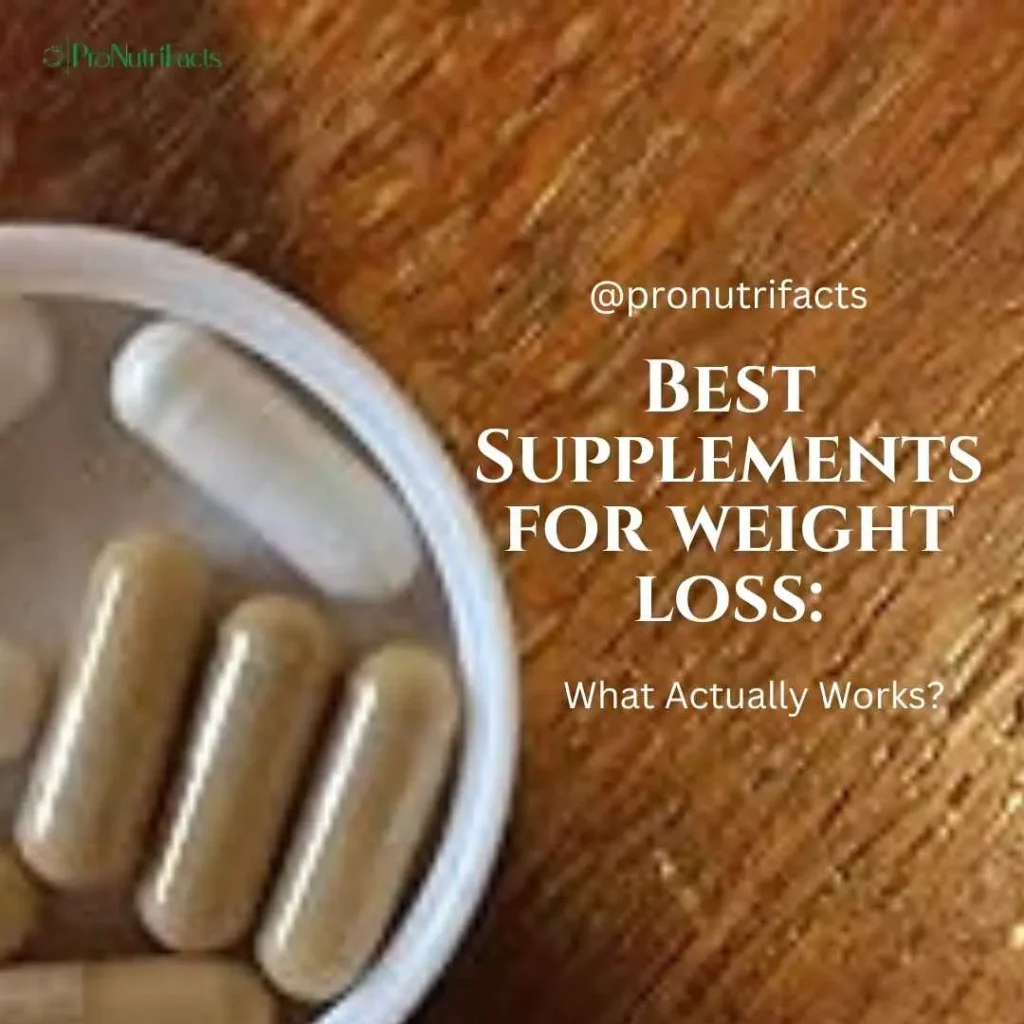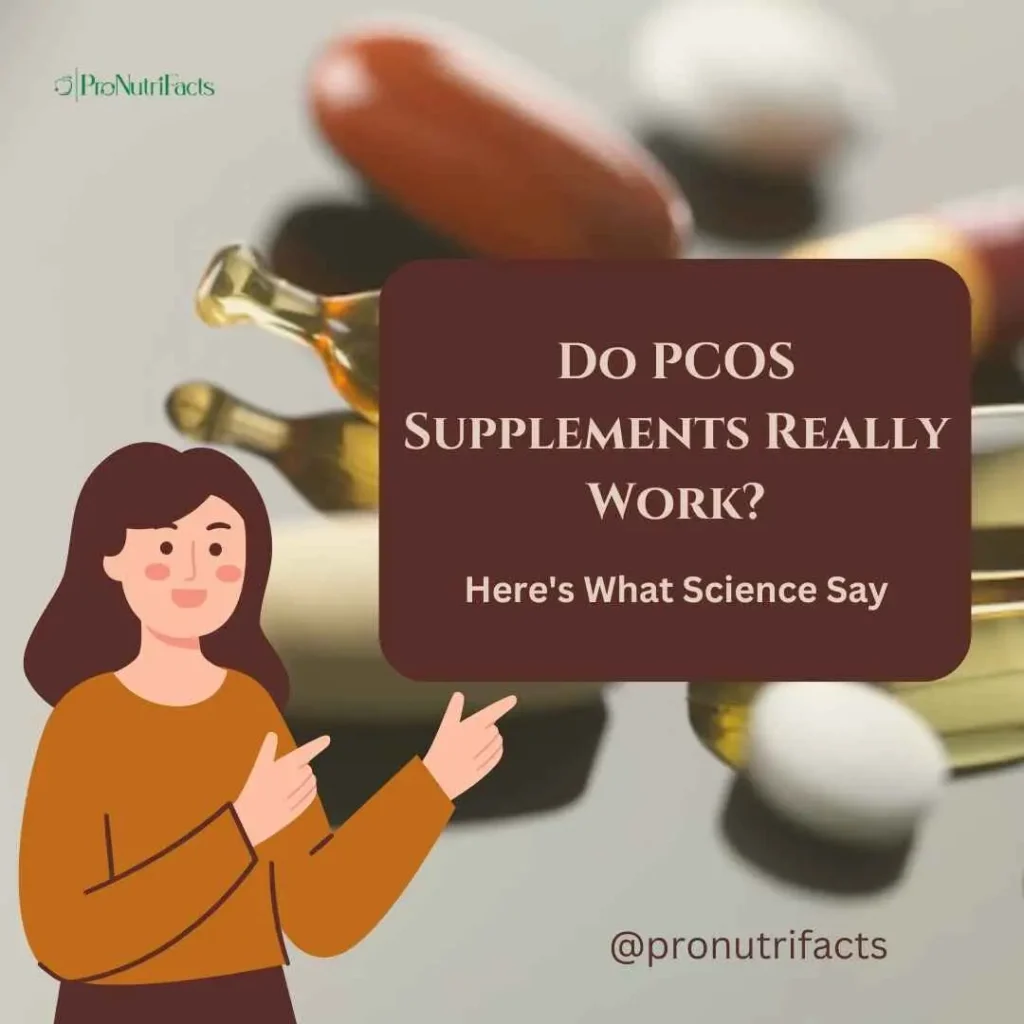Weight loss is a goal for many, but the approach people take varies. Some turn to weight loss supplements, hoping for fast results, while others focus on diet to achieve sustainable changes. Understanding the effectiveness of both methods is crucial for making informed decisions.
Weight loss supplements include fat burners, appetite suppressants, and metabolism boosters. These products claim to accelerate fat loss, reduce hunger, or increase calorie burn. While they may offer temporary results, their long-term impact is often debated.
A diet, in the context of weight loss, focuses on creating a caloric deficit through balanced nutrition. This means consuming fewer calories than the body burns while ensuring proper nutrient intake. A well-planned diet supports sustainable weight management and overall health.
Many people seek quick fixes because they want immediate results. Weight loss supplements promise fast progress, making them appealing. However, long-term success often depends on lifestyle changes rather than shortcuts.
This article will break down the benefits and drawbacks of both approaches. By examining their effectiveness, risks, and sustainability, we can determine which method truly supports lasting weight loss.
How Weight Loss Supplements Work
Types of Weight Loss Supplements
Weight loss supplements come in different forms, each targeting specific aspects of fat loss. Fat burners, also known as thermogenics, often contain caffeine or other stimulants to increase calorie burn. These supplements raise body temperature and boost energy expenditure, helping users burn more fat.
Appetite suppressants work by reducing hunger, making it easier to eat less. Some use fiber-based ingredients to create a feeling of fullness, while others rely on stimulants to curb cravings. By lowering calorie intake, these supplements support weight loss efforts.
Carb and fat blockers prevent the body from absorbing certain macronutrients. These supplements interfere with enzymes that break down fats and carbohydrates, reducing the number of calories absorbed. While they may help, they are not a substitute for a balanced diet.
Metabolism boosters include ingredients like green tea extract and L-carnitine, which may enhance fat oxidation. These compounds support energy production and encourage the body to use stored fat as fuel. Although promising, their effects are often mild compared to diet and exercise.
Limitations and Drawbacks
One major drawback of weight loss supplements is their temporary nature. Many people experience results while using them, but the effects often fade after discontinuation. Without lasting dietary changes, weight regain is common.
Potential side effects are another concern, as some supplements cause digestive discomfort, jitteriness, or sleep disturbances. Stimulant-based products, in particular, can lead to energy crashes and dependency. These risks make it essential to choose supplements carefully.
Lastly, many supplements only work when combined with a caloric deficit. Without proper diet and exercise, their impact is minimal. Additionally, the weight loss industry is filled with misleading claims, making it difficult to find products that truly deliver results.
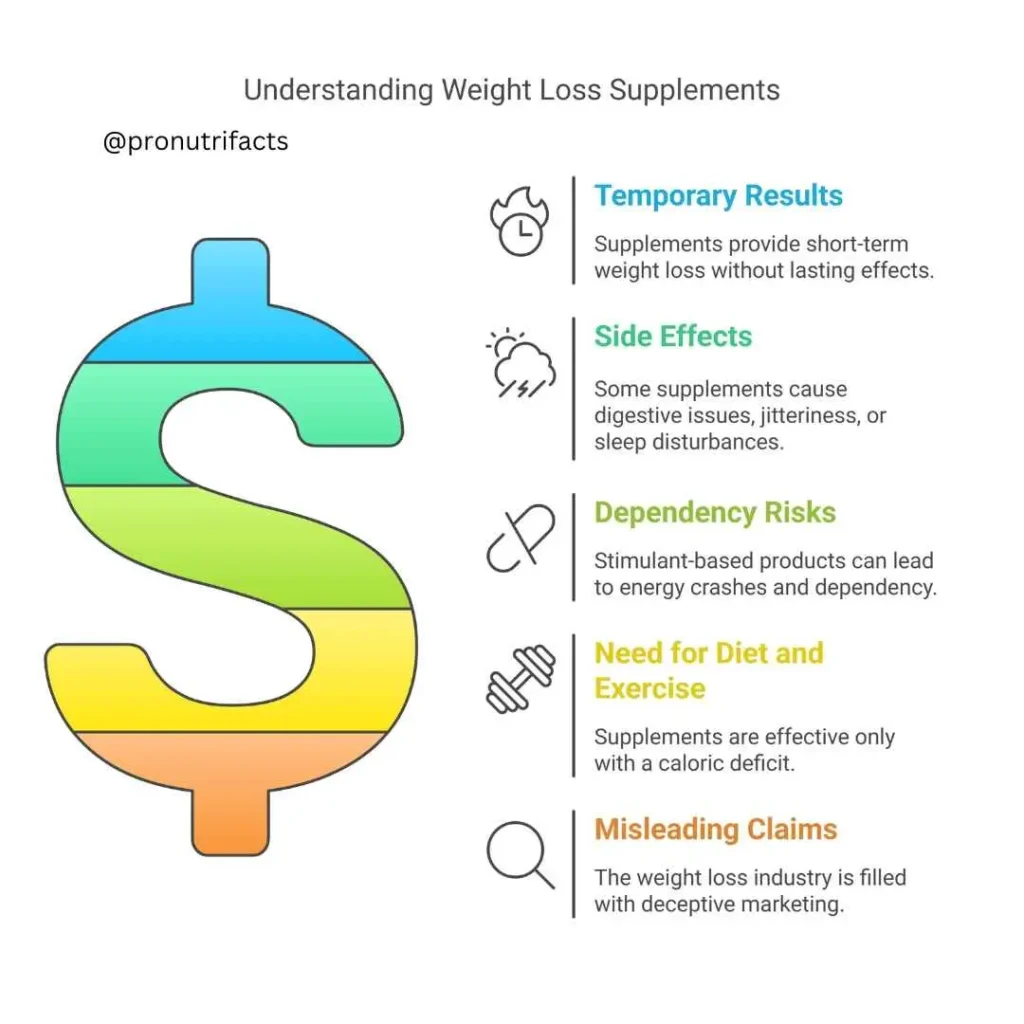
How Diet Affects Weight Loss
Role of Calories and Macronutrients
Weight loss is fundamentally driven by a caloric deficit. This means consuming fewer calories than the body burns, forcing it to use stored fat for energy. No supplement can override this principle, making diet the most important factor in weight loss.
Protein intake plays a crucial role in fat loss by preserving muscle mass. Higher protein diets help maintain metabolism, improve satiety, and reduce cravings. This makes it easier to stick to a calorie-controlled diet without feeling deprived.
Healthy fats and carbohydrates provide essential nutrients while maintaining energy balance. Fats support hormone production, while complex carbs fuel the body efficiently. Including both in moderation prevents extreme hunger and binge eating, which can derail progress.
Sustainability and Long-Term Impact
A well-structured diet can be tailored to fit individual lifestyles, making it more sustainable. Unlike supplements, which offer short-term effects, dietary changes can be maintained for life. This flexibility makes long-term weight management more achievable.
Following a balanced diet consistently helps prevent weight regain. Instead of relying on temporary fixes, sustainable habits create lasting results. When people develop healthy eating patterns, they are less likely to experience the yo-yo effect of dieting.
Beyond weight loss, a nutrient-dense diet supports overall health. Vitamins, minerals, and fiber from whole foods promote digestion, heart health, and immunity. This holistic approach improves well-being while naturally supporting weight management.
Supplements vs. Diet: Which is More Effective?
Short-Term vs. Long-Term Results
Weight loss supplements can offer a temporary boost, but diet is the key to lasting success. Many supplements work by increasing metabolism, suppressing appetite, or blocking calorie absorption. However, these effects wear off once the supplement is discontinued.
Without dietary changes, weight regain is almost inevitable. Relying on supplements alone often leads to a cycle of temporary progress followed by setbacks. A well-balanced diet, on the other hand, creates sustainable habits that prevent weight fluctuations.
Long-term success comes from maintaining a healthy eating pattern. Diet not only supports weight loss but also improves overall health. Whole foods provide essential nutrients that supplements cannot fully replace.
Cost Comparison
Weight loss supplements can be expensive, often requiring continuous purchases to maintain their effects. Premium fat burners, appetite suppressants, and metabolism boosters can add up quickly. Over time, this can become a significant financial commitment.
A diet based on whole foods is more cost-effective. Lean proteins, vegetables, and whole grains are affordable and widely available. While healthy eating requires planning, it does not involve ongoing supplement costs.
Investing in a balanced diet also reduces healthcare expenses. Proper nutrition supports long-term health, potentially lowering the risk of chronic diseases. This makes diet a smarter financial choice in the long run.
Safety and Health Considerations
Many weight loss supplements lack long-term research on safety and effectiveness. Some contain stimulants or unregulated ingredients, leading to side effects like jitteriness, digestive issues, or heart concerns. Without FDA approval, quality and purity can be inconsistent.
However, a well-balanced diet naturally supports weight loss without risks. Whole foods provide essential vitamins, minerals, and fiber, improving digestion, metabolism, and hormone balance. Unlike supplements, a healthy diet has no harmful side effects.
Choosing diet over supplements ensures sustainable, safe weight loss. While supplements can play a minor role, long-term health depends on consistent, nutrient-rich eating habits.
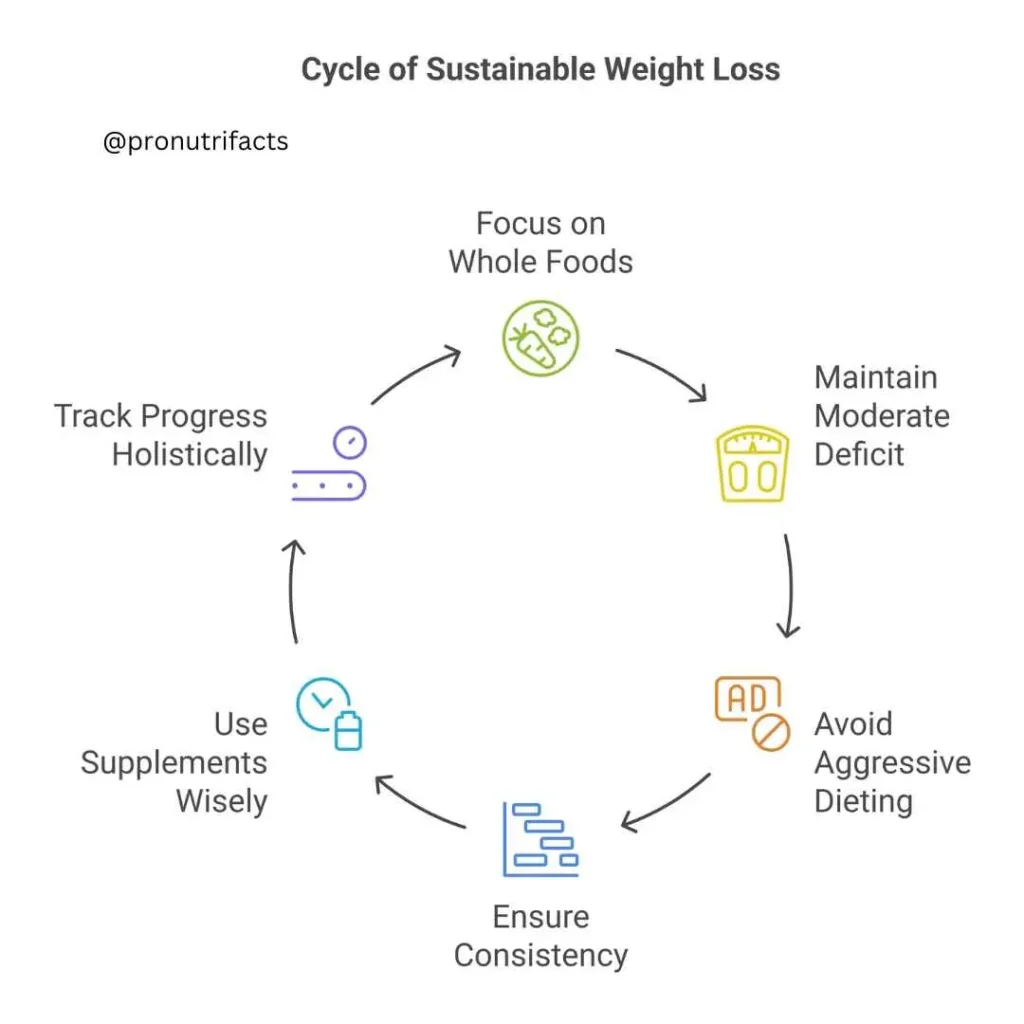
The Best Approach for Sustainable Weight Loss
Combining Both Smartly
Weight loss supplements can support progress, but they should never replace a balanced diet. Whole foods provide essential nutrients, fiber, and sustained energy, making them the foundation of any effective weight loss plan. Supplements can help fill gaps but should only play a minor role.
A food-first approach ensures long-term success. Prioritizing real, nutrient-dense meals prevents deficiencies and supports metabolism naturally. If supplements are used, they should complement—not substitute—a well-rounded diet.
Relying too heavily on supplements can lead to dependency and unrealistic expectations. Instead, a balanced combination of smart eating and minimal supplementation yields the best results.
Practical Steps for Effective Weight Loss
Start with whole, nutrient-dense foods like lean proteins, vegetables, and healthy fats. These provide satiety and essential nutrients while keeping calorie intake in check.
Maintain a moderate caloric deficit without extreme restrictions. Overly aggressive dieting often leads to burnout and rebound weight gain. A sustainable approach ensures consistency.
Use supplements only for convenience, not as a necessity. They may support metabolism or appetite control, but they should not dictate progress.
Track progress using body measurements, strength improvements, and energy levels rather than focusing solely on the scale. Sustainable weight loss is about overall health, not just a number.
Wrapping Up!
Weight loss supplements can offer support, but they are not a substitute for a proper diet. While they may enhance metabolism, suppress appetite, or block calorie absorption, their effects are temporary. Without a balanced diet, long-term success is unlikely.
Diet remains the foundation of sustainable weight loss. A nutrient-rich eating plan fuels the body, regulates hunger, and ensures overall health. Whole foods provide essential vitamins, fiber, and energy balance—factors no supplement can fully replace. Long-term weight management depends on consistent, healthy eating habits.
The best approach combines balance, consistency, and real food. Quick fixes may seem appealing, but lasting results come from smart dietary choices. Supplements can assist, but they should never be the primary strategy.
If the goal is fast weight loss, supplements may offer temporary support. However, for long-term success, diet always wins. Sustainable weight loss is built on proper nutrition, not pills or powders. Prioritizing whole foods and a well-rounded eating plan is the key to lasting results. Visit Pronutrifacts to explore more health tips.
